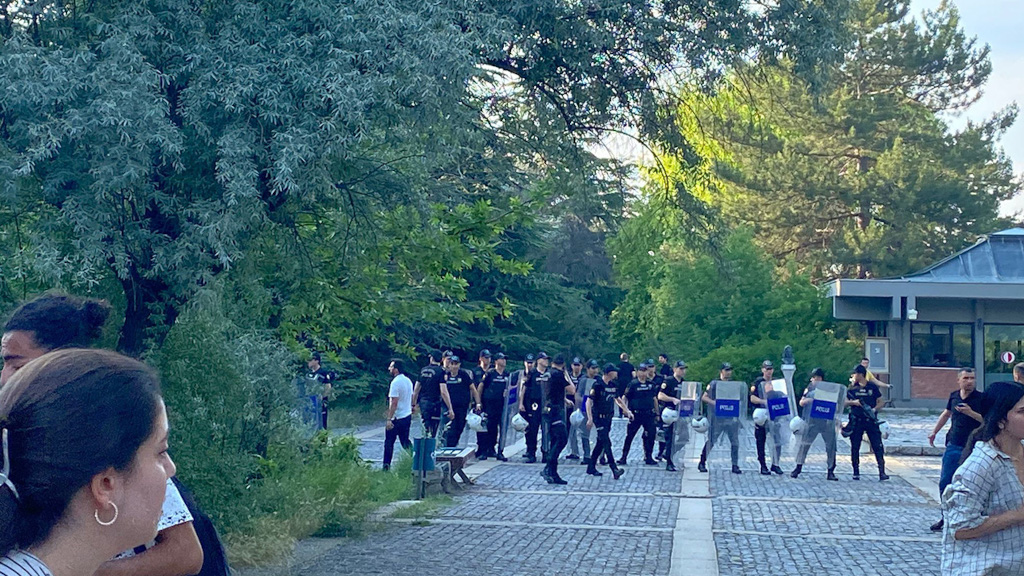Turkish police used excessive force to disperse an annual pride march held at Middle East Technical University (ODTÜ) in Ankara on Friday, despite a ban recently imposed on the event by the rector’s office, detaining 38 students, local media reported, citing data from the Contemporary Lawyers Association (ÇHD).
Earlier this week the rector’s office said in an email sent to students that security measures would be taken if the students insist on holding the “unauthorized march,” adding that there are efforts to present ODTÜ as the center of these marches and that such efforts damage the prestige of the university.
According to Turkish media reports, police officers, including riot police, broke up the march, employing batons, plastic bullets and pepper spray to disperse the students and detain some of them.
Nils Muižnieks, Amnesty International’s Europe Director, called on Turkish authorities to “immediately and unconditionally” release the students who were detained for exercising their right to peaceful assembly by “marching peacefully for their rights to dignity and equality.”
“Scenes of peaceful Pride marchers on the METU campus being confronted with police using unnecessary and excessive force, including pepper balls, are deeply disturbing, particularly as this is a repeat of the brutality we saw here three years ago,” Muižnieks said.
The pride march was organized by the university’s LGBTI organization Solidarity Club, established in 2011. The club, which has been organizing pride marches at the university since 2011, had not been able to hold the gay march for the last two years due to the Covid-19 pandemic.
The previous pride march at the university took place in 2019 despite a ban from the rector’s office, when police battered and detained some students who took part. Eighteen students and a professor who were later indicted for violating the law on demonstrations and public meetings were acquitted of the charges. An Ankara court ruled in 2020 that the ban on the pride march had no legal basis.
Homosexuality is not illegal in Turkey, but homophobia is widespread. After a spectacular Pride March in İstanbul drew 100,000 people in 2014, the government responded by banning future events in the city, citing security concerns.
It is common for ruling Justice and Development Party (AKP) politicians and their leader, President Recep Tayyip Erdoğan, to attack LGBTI individuals and accuse them of perversion and destroying family values.
Meanwhile, Turkey was ranked 48th among 49 countries as regards the human rights of LGBT people, according to the 2021 Rainbow Europe Map published by the International Lesbian, Gay, Bisexual, Trans and Intersex Association (ILGA)-Europe in May.


